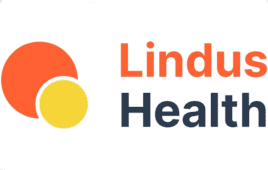
Photo by Anna Shvets from Pexels
COVID-19 disrupted oncology clinical trials. More than a year into the pandemic, drug developers and regulators, including FDA, are also looking for ways to catalyze clinical trial innovation with AI and other tech.
The FDA has been “vigilant as they always are to make sure that there is strong science, but they are much more open both in study design, alternative execution methods and the use of real-world evidence (RWE) and retrospective data,” said Jeff Elton, CEO of ConcertAI.
ConcertAI is now in a five-year collaboration with the FDA that involves RWE and AI to support regulatory decision-making. “One of the first projects is looking at cardiovascular adverse events that occur in [immuno-oncology]-treated patient populations,” Elton said.
One factor contributing to the evolution of oncology clinical trials is the change in interactions between sponsors and regulatory agencies. “It is materially different than it was three to five years ago,” Elton said.
The capabilities of digital tools, including electronic medical records (EMRs) used in clinical trials, are also advancing. Interoperability and functionality are improving. The availability of Fast Healthcare Interoperability Resources (FIHR) Bulk Data Access functionality this year will enable new workflows. “The original FHIR was one patient at a time. Batch FHIR means I can move a whole cohort together,” Elton said.
Another trend influencing oncology trials is the use of e-screening tools using rules engines to optimize clinical trial recruitment. In oncology, hematology and neurological cancer trials, it is common to have relatively small cohorts “with a laser-crisp definition of the group,” Elton said. Recruitment is a common challenge of running a small trial with a narrow patient population.
Ultimately, the totality of these trends creates new structural elements for oncology trials. “They are a foundation in the sense that they’re not just conventions of practice, but they’re now legally implemented and in place,” Elton said.
The slow pace of clinical development also tends to make drug developers supportive of tactics to boost efficiency. “When a pharma or biopharma, look at the process, there’s nothing about it they want to preserve,” Elton said.
“But now that you can start to streamline identification and move toward embedding the tools into the standard of care for clinical research, you can start to rip waste out of the system,” Elton said. That is, digitally-driven trials can cut down on or eliminate wait states, manual processes and remote quality control. Digitally driven trials embed technology into workflows.
While not all clinical trials today can make use of such tools, many could, Elton said.
Phase 4 postmarketing studies can make use of some such digital mechanism. A significant number of Phase 1b, Phase 2a and Phase 2b studies — and some Phase 3 trials — can also leverage digital tools in Elton’s estimation.
“As many as 25% to 40% of existing studies deployed today actually could start migrating over, use AI and digital clinical development tools and things like that,” Elton said.
Filed Under: clinical trials, Drug Discovery, Drug Discovery and Development, Industry 4.0, RD





Tell Us What You Think!
You must be logged in to post a comment.